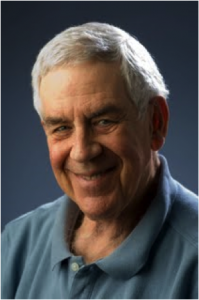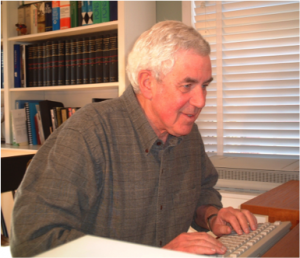 The economics profession celebrates the 80th birthday of IZA Research Fellow Marc Nerlove with a prestigious conference in Washington DC on May 23, 2014. The speakers include James Stock (Harvard University), Jinyong Hahn (University of California Los Angeles), James Heckman, (University of Chicago), Ariel Pakes (Harvard University) and John Rust (Georgetown University).
The economics profession celebrates the 80th birthday of IZA Research Fellow Marc Nerlove with a prestigious conference in Washington DC on May 23, 2014. The speakers include James Stock (Harvard University), Jinyong Hahn (University of California Los Angeles), James Heckman, (University of Chicago), Ariel Pakes (Harvard University) and John Rust (Georgetown University).
See Program.
IZA Director Klaus F. Zimmermann and the IZA network congratulate the great scientist for his lifetime achievements.
Joining the network in 2001, Marc Nerlove has been an active supporter of IZA in many ways. The collaboration of the IZA Director with Nerlove goes back to the 1980s, when Marc Nerlove was a frequent visitor at the University of Mannheim in Germany.
Marc Nerlove is currently Distinguished University Professor of Agricultural and Resource Economics, University of Maryland. He previously held positions at Yale, Stanford, Chicago, Northwestern, and the University of Pennsylvania. He received his Ph.D. in Economics with distinction from the Johns Hopkins University in 1956. In 1969, Marc Nerlove was awarded the John Bates Clark Medal. He is Fellow of the Econometric Society (1960), of the American Statistical Association (1964), the American Agricultural Economics Association (1993), and the Argentine Association of Political Economy (2000). In 2012, he was elected Distinguished Fellow of the American Economic Association (AEA).
 Marc Nerlove is an outstanding researcher and excellent teacher, who has stimulated generations of applied economists and econometricians. Addressing important empirical problems in all areas of economics, he was pushing the frontier of widely used econometric methods in time-series analysis and micro-econometrics. For instance, he introduced the concept of partial identification into econometrics and laid the basis of the understanding of adaptive expectations.
Marc Nerlove is an outstanding researcher and excellent teacher, who has stimulated generations of applied economists and econometricians. Addressing important empirical problems in all areas of economics, he was pushing the frontier of widely used econometric methods in time-series analysis and micro-econometrics. For instance, he introduced the concept of partial identification into econometrics and laid the basis of the understanding of adaptive expectations.
Early on, he developed dynamic models of producer supply, and was dealing with issues of agricultural economics like estimating the elasticities of supply of corn, cotton and wheat, and predicting the demand for meat in the United States. He has also done core research on population economics, fertility and optimal population. He has further pioneered the analysis of business survey data.
Throughout his extremely productive academic life, Marc Nerlove has been and continues to be a role model for applied economists.

